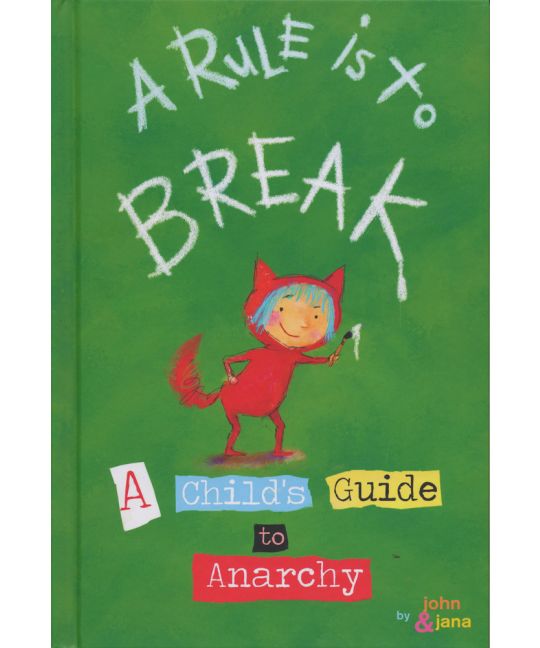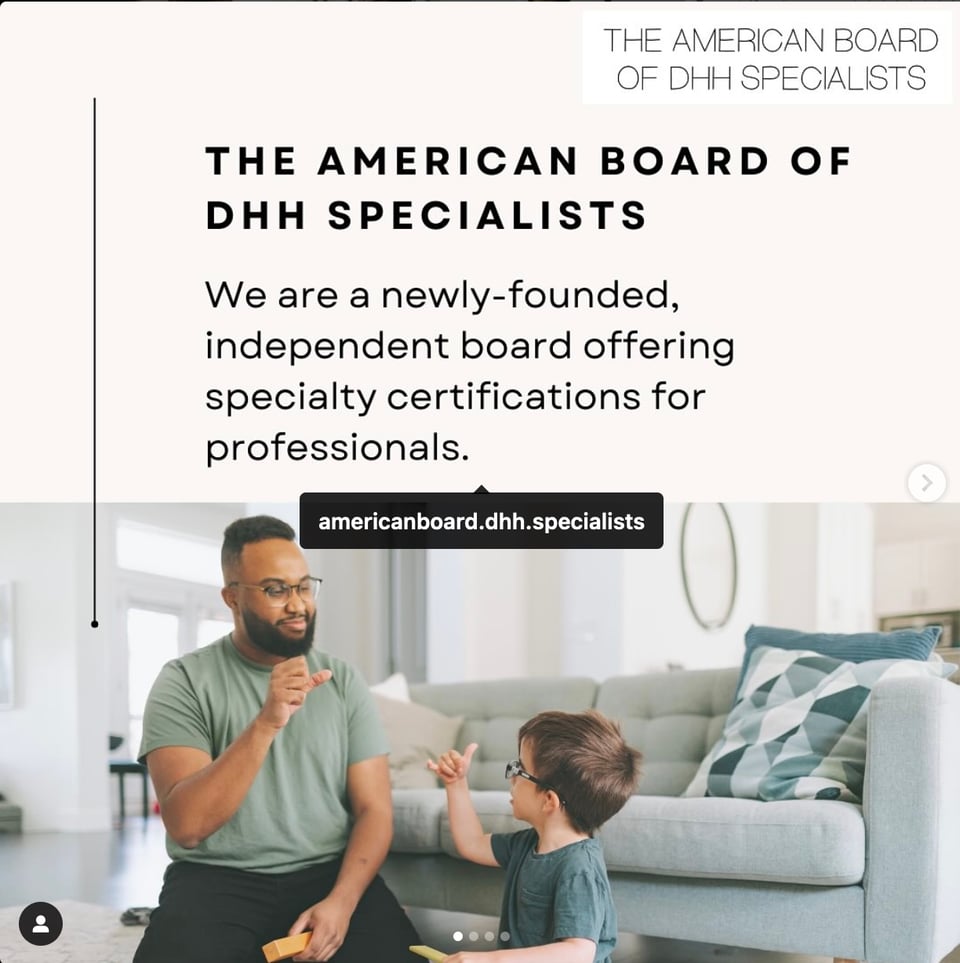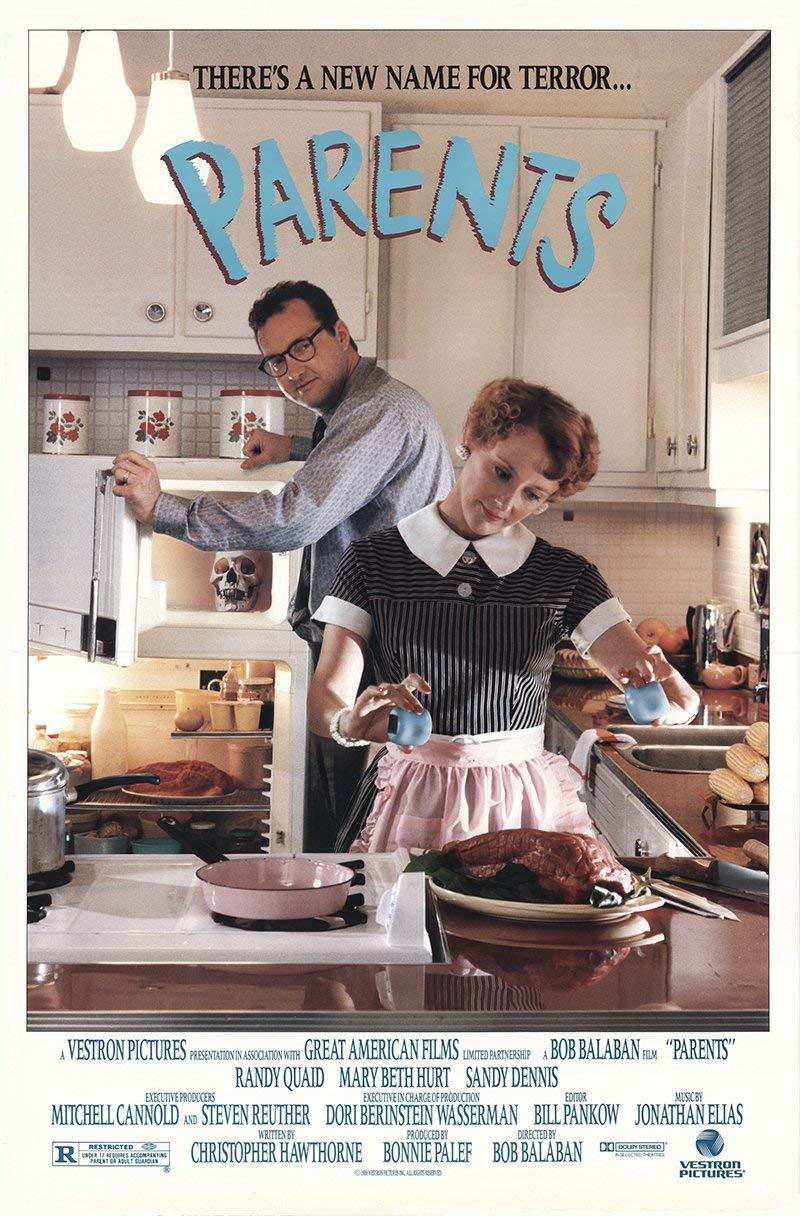Anarchy in the Nursery
Beyond Brown Bear, Brown Bear
I’m going to begin with a new series on favorite books to sign with my kid in ASL. It’s a retrospective at this point, because Oscar absolutely refuses to let me read to him anymore—he can do it himself. But I LOVED reading to him, and I feel like I’d better share my faves before Dad brain claims my memory of the past six years.

A Rule is to Break by John Seven and Jana Christy is my back-to-school pick. It’s a ton of fun, with some good advice and some baaaaaaaaad examples for kids in it. But as a book for a middling ASL talent like me, it’s great, because it’s just a series of revolutionary mottoes backed up by funny pictures:
When someone says, “Work,” you say, “Why?”
Hug the ugliest monster you can find.
Give away stuff for free!
This is pretty much Signing Naturally units 1-12. While it’s trickier than Baby Happy, Baby Sad, there’s no difficult rhymes to work around, the compound sentences are kept to a minimum, and there aren’t a ton of colloquialisms. It also has a call-and-response structure that’s fun to bounce around with your toddler:
“Think for yourself! Use your…?”
“Brain!”
The illustrations work well, too, connecting thematically but not always literally to the words on the page. This is absolutely critical to a good kid’s book, where a dialog between the text and pictures gives you a lot of the richer meaning of the story.
On the content level, a lot of the lessons about asserting yourself and questioning authority are extremely relevant to deaf kids in particular, and there is an underlying theme of lifting up and respecting difference in an active and positive, “I am a very important cephalopod” way. And there’s also parts of the book I can’t possibly endorse about never going to bed or taking a bath.
Some reviewers on goodreads get very huffy about why ”Cake! For! Dinner!” isn’t great praxis for non-hierarchical political organizing, but the true anarchist in me thinks that these passages are an opportunity to discuss the challenges of autonomy, and encourage independent decision-making and self-care. After all, I’d be a bad anarcho-parent if I raised my kids to believe everything they read, or if I assumed that I automatically knew what was good for them.
Certified

Credential alert: I recently interviewed Dr. Kimberly Ofori-Sanzo for an upcoming newsletter. She’s best known for her work at Language First, but we also discussed her new project, The American Board of DHH Specialists, which she co-founded with a team of Deaf and hearing professionals.
When I asked her why this project was important, she cited two major factors:
<blockquote>One is that [AG Bell’s] Listening and Spoken Language certification is something parents seek out. To them, it signals that you've achieved some high level of skill. We need the equivalent of the LSL-AVT for ASL-English bilingual practitioners.
The other is that parents deserve to actually find people in their area who know what the eff they're doing.</blockquote>
This fills a huge hole in the professional landscape; my family spent more than a year searching for an SLP who could evaluate our son’s ASL development, and I know we’re not alone. Having a central list of certified folks would have been an enormous help.
SLPs, AuDs, ToDs, and others who work with deaf kids or adults can apply for a DHHS-P cert to show that they’re familiar with best practices for deaf hand hard of hearing clients, and crucially, that they have the fluent ASL language skills to back up those practices. They also have a track for scholars (DHHS-A) doing research or teaching related to DHH children or adults, and an associates degree (DHHS-PA) track in cooperation with the The College of New Jersey.
For a breakdown of their mission and methods, check out their unusually helpful Instagram feed at www.instagram.com/americanboard.dhh.specialists/
Cui bono?
I mentioned Parenting is a Conflict of Interest in my first email. Kathleen O’Neal’s essay first caught my attention when I picked it up at the same place I found A Rule is to Break: the Bay Area Anarchist Book Fair.
The essay’s title says it all:
Guardianship and minority give parents power at the expense of their children…
When we hear someone speaking of his or her role as a parent as a justification for beliefs about youth that many youth themselves would likely find oppressive, or even abusive, we should never accept that as good enough, and we should never defer to their judgment on those grounds alone. If anything, that person’s status as a parent should make us more suspect about his or her motives for supporting youth oppression.
I’m actually a little leery about this flavor of anarchist youth liberation. While I think that kids are more able than we usually acknowledge, and that they have a right to speak to their own experiences, a “kids are labor, adults are management” framing is too reductive. And when adults start pushing radical autonomy for children, they can use it to justify some very dark things.
But even if I’m not ready to dismantle the gerontocracy, O’Neal’s basic point is strong: as parents, we hold power over our children. Whatever stories we tell ourselves, the struggle to control them is very much a fight to meet our own practical and emotional demands. What makes us think we’ve got their best interests at heart, or that we even know what those interests are?
This pushes deep into the hearing parent / deaf kid dynamic, and O’Neal actually extends this logic to disability rights in her other work. My baby was born with needs I couldn’t anticipate, and couldn’t meet without help. But in a “parental rights” framing of the situation, my ideas and biases about education, communication, and development take precedence, no matter how mistaken and harmful they are to Oscar. This is a major criticism of IDEA and the way early intervention and special education are delivered to deaf and hard of hearing children in the US.
You can also see the harm “parent’s rights” can cause on a bigger scale, when organizations like Autism Speaks sideline autistic community members while claiming to act on their behalf, or when Moms for Liberty bans books in school libraries. Not only is tyranny over your own children unjust, but it can easily be extended to tyranny over everyone’s children, and eventually to everyone; it’s the fascist model of the state as family, with the parents as dictators.

But all that begs the question: if I’m starting from a place of no knowledge, at a stage when my child is literally without language, who can speak for my kid? And how can I tell a good advocate from a bad one?
This is part of the trap that AG Bell & co. lays for hearing parents. In the absence of other information, we’re more likely to be persuaded by the medical cosplay that the LSL / AVT crowd engages in. But their big trick is that they then hand us back our agency, saying that it’s ultimately us who decides what’s good and necessary for our babies—remember that when they campaigned against LEAD-K, a major talking point was that it “violated parent’s rights.”
In this way, they appeal to biases we’re barely aware of, but make it seem as if we’re making our choices freely, fully exploiting that conflict of interest between us and our kids. Focusing on parent choice becomes a self-reinforcing loop where children’s interests can vanish.
But as online media has evolved, hearing parents have gained more access to Deaf adults (and Deaf children) than ever before, and so we have a better chance to learn from the folks who actually lived a deaf childhood. This is incredibly useful because it encourages us to look beyond the baby and imagine our children as 10, 25, or 50-year-olds. This kind of deep-time, after-I’m-dead perspective can help de-center the parental rights viewpoint, which leans heavily on our experience of our kids as helpless infants.
But while I think Deaf adults should be the first place to look for guidance. I don’t think that’s really enough of an answer; not every Deaf person or institution can see past their needs, either. My son sits in a web of support that includes Deaf and hearing professionals, educators, friends and family. With more information available, I have a better shot at figuring out who to trust and what paths to take, so long as I constantly ask myself, who benefits?
Stay in Touch
Agree or disagree, I love hearing from folks. So if you want to question my motives, you can reach me over on my Facebook, Bluesky or Instagram accounts, or just reply to this email. And if you like this newsletter, please pass it on to other parents or people who’d be interested.
Thanks!